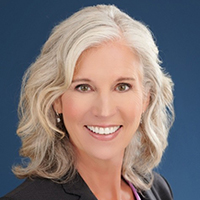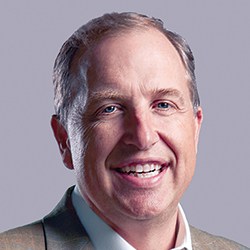A Call To Action From The MedSupplyChain Conference
May 2024 | From HIDA's Healthcare Distribution & Supply Chain™ magazine
HIDA’s MedSupplyChain Conference brought together more than 200 leaders from both the public and private sectors to identify ways to increase preparedness and improve medical product availability. This year’s meeting stressed the role of emerging technology and the growing sense of urgency to address issues in supply chain management.
A familiar refrain throughout MedSupplyChain conference sessions was “the time is now.” Panelists and participants alike shared new optimism that technological tools now exist to address key challenges in demand planning, pandemic preparedness, and freight optimization. Now is the time for our industry to show that we have the will to embrace change and enact sweeping reforms to the medical supply chain.
The conference exceeded expectations and set a variety of new records and milestones:
More People
The 2024 conference set a new record for participation, with 50+ percent more medical supply chain professionals in attendance.
More Partners
Attendance of officials from local, state, and federal government preparedness agencies more than doubled — emphasizing the value of public-private partnerships in the medical supply chain.
More Panelists
The program featured expert speakers, case studies, and interactive roundtables to allow participants to work together to build supply chain excellence.
More Perspectives
Among the attendees at MedSupplyChain were 11 college students from HIDA’s first-ever cohort of Emerging Leaders. These students attended panel discussions about healthcare distribution, engaged in networking opportunities, and met with industry leaders.
Tools For Building A Healthier Supply Chain
Resilience. Speed. Intelligence (both human and artificial). These are the critical elements for building a healthier supply chain. The opening panel of the HIDA MedSupplyChain Conference featured providers and distributors discussing ways to use technology to collaborate and better streamline healthcare.
Our Role In Healthcare Has Never Been More Important
Laura Kowalczyk, Vice President of Supply Chain for UAB Medicine, reminded the audience of the stakes involved across the continuum of care. The COVID pandemic was a defining moment of adversity that brought our industry together. But our industry knows that COVID isn’t over, and the work continues. At Kowalczyk’s hospital in Birmingham, beds are running at 96% capacity, the ICU and med-surg units are on diversion, and the ER sometimes has so many patients they have to wait in the hallway. In trying times such as these, the role of healthcare distributors remains essential to patient care.
“The time is now. Every sector of the supply chain is represented here. We have an incredible opportunity to talk about the
issues in the supply chain that we need to solve and innovate.”

Laura Kowalczyk
Vice President of Supply Chain
UAB Medicine
Providers Are Actively Tackling These Issues Now
Geoff Gates, Senior Director of Technology for Cleveland Clinic, explained the health system has achieved resiliency by building a digital ecosystem based of data management and analytics. They have used radio frequency identification (RFID) technology to track product. This RFID tracking enables the hospital to know the instant a product is utilized at the point of use, so it can be instantly reordered. Cleveland Clinic has deployed this technology across 145 departments at 46 facilities around the world — accounting for more than 1 million surgical encounters.
“Resiliency is not planning for the next pandemic; it needs to be an everyday thing.”

Geoff Gates
Senior Director of Technology
Cleveland Clinic
Technology Can Empower Clinicians
Dr. Tom Schwieterman, the Vice President of Clinical Affairs & Chief Medical Officer at Midmark Corporation, used his life experience in a family of doctors to offer a generational perspective on data management. Clinical data is accelerating at an astronomical pace. When his father became a doctor a generation ago, clinical information doubled every fifty years. For his son in medical school, clinical information doubles every 73 days.
When doctors are overwhelmed with data, they don’t practice medicine as well as they could. But artificial intelligence can reverse this trend by automating many of the routine documentation tasks that keep doctors away from the bedside. AI also allows distributors to partner more effectively with providers, and move from being product oriented to being solutions-oriented.
“Artificial Intelligence is the biggest advance in clinical care in my lifetime. It is an advance as significant as penicillin, MRIs, or mRNA vaccines.”

Dr. Tom Schwieterman
Vice President of Clinical Affairs & Chief Medical Officer
Midmark
Members: Check out the
full magazine PDF for all articles in the Spring 2024 issue, including:
- Anatomy Of A Disruption: How Public-Private Partnerships Solve Crises
- The Price Is Right: Contract Administration Leaders Share Best Practices For Increasing Pricing Accuracy And Reducing Rework
- How To Make Your Virtual Sales Presentations More Memorable
- Market Insights, including for the PPE and home healthcare markets